B92, 20 years later
Friday, 22.05.2009.
16:53

B92, 20 years later Q: When Radio B92 began broadcasting twenty years ago, you had an office of 15 square meters and one telephone, and your signal barely managed to cover downtown Belgrade. Today, it is the commercial radio with the highest ratings in the country, and a part of the larger media system which includes a television station, Internet portal, music production, and book publishing. Did something stay the same after all? Matic: You are right, many things have changed. But I would like to believe that the basic spirit and idea remained unchanged. B92 has always been a gathering of people with different fields of interest, depending on the profession they belong to, whether they were journalists, activists from various social fields, or media professionals in music, culture and arts, technology, design and marketing. However, what carried through the spirit of B92 all these years is idealistic faith that as media we can teach Serbia to be a better country than it is, ourselves who live in it today, but also those who come after us, our children. That is what has always connected everyone on B92 who is a part of our story – from myself to the last sound technician. To be popular and big does not mean to lose the passion and faith that we do the most important thing a media can do in a sensitive country with so many unresolved issues: try and change it and make it better. Also, we still cherish criticism and suspicion towards those who have the power to control fates of thousands, even millions of people. That is what was giving us strength twenty years ago, that is giving us strength today. People still trust us the most. Even those who don't like us know well they would get the time and space from us according to professional standards. As a media house we have tried in the last twenty years to build a very clear profile of our station and articulate a set of values that this house and people who work in it stand for. One of the constant phenomena which adorns B92 is a combination of respecting and challenging values and principles that B92 represents. I would even go that far as to say that political and other options are getting closer to or drifting away from B92, which is one of our largest legacies. It is not us who lean towards options, it is the opposite. Q: In the book by Dusan Masic Talasanje Srbije (Making Waves in Serbia) about Radio B92, you say that B92 has always dedicated a lot of its time to subversion and that the major part of its survival was based on subversive strategies. Is there anything subversive today in B92's activities and can a media house with national coverage allow itself such a principle of activity at all? Matic: It all depends on how you understand the attribute "subversive". For a lot of people The Insider is a highly subversive program because it speaks about things others do not dare speaking about. Unfortunately, we still live in times when there are so-called taboos and when professional approach to certain topics is treated as subversive strategy. If that is the price of professionalism and fight for the truth, however, then we do not shy away from subversion. And the fact that we are a television with national coverage only increases our responsibility towards public which expects us to be the way we have been for years. Professional and subversive. Subversion is necessary when it is impossible to work systematically. For the first ten years, B92 was a symbol of media subversion due to mere fact that it was illegal, that it was thrown out of the system. When you work on the edge, you have the right to use all the relevant strategies you have at your disposal. Of course, it is altogether else that we actually enjoyed having no rules, using our favorite tactic for confusing the enemy – "fiercely and nonsensically". But the most subversive thing today may be that we are treated as commercial media when we behave as a combination of commercial media and public service. The question is how long can we endure in that position, but I hope that, just like each time before, we will make others adjust to us. B92 is subversive today because it is once again out of the system. And by that I don't mean the system defined by the Broadcasting Act, but the model of behaviour in the society, the fact that you can buy media and their opinion for money easier than ever. It is sad but true: media over here directly reflect the state and relations of political power and because of that, regardless of the colour of packaging, they are alike as two eggs, from the smallest to the largest. The fact that B92 today airs a program such as The Insider is pure subversion because such a program belongs at a public service and not commercial television. The fact that B92 is much more a public service than the one that should be is the largest media subversion in Serbia today. But we can only thank those who left that space open for us: that is why we are so strong. Without it, we would be lot less stronger. With subversion comes innovation: today we have a very strong superdesk where every journalist works for all our platforms: radio, television, info channel, web site, teletext, news for mobile phones. Convergence of media is at maximum. When you look at the example of Index Finger alone, you will see what I am talking about: we have managed to create a radio show with the highest ratings in Serbia, then we added cameras to it, and not only its listeners switched to TV, but we doubled our audience. The Index Finger on the site also has a very loyal audience, when it comes to both the video and written version. Through smart use of technology, we have multiplied our influence to maximum effect. Q: According to one interpretation, in the 1990s B92 was primarily a movement, and in this century it has become primarily a media. If that is true, is that essentially a progress or not? Matic: We have been a movement while we were in constant danger of being closed down as media. It was a necessity of the social fight and political circumstances. If we hadn't been a movement, that famous coaxial cable would have never dried off. Regardless of support from all the journalist associations and large international media, we would not have survived if hundreds of thousands of people had not marched in front of our windows. They primarily stood up against the electoral theft, but they knew very well that we are important so that people can know who are the thieves. What we have today is essentially a progress. We have become a media that does not need support from the street any more. (Although there are situations when that is still required, too). At the same time, instead of a movement, today we can talk about a certain cultural matrix, taste, model of behaviour and reaction, which are closely connected to what B92 does. We have also not given up certain enlightening mission, especially when it comes to basic values and ideals we have been striving for the whole time. This equation you mention does not say whether by becoming a media we have stopped being a movement, though. Because we have not. One should not let the formal frame of legal prerequisites for work, which B92 did not have in the past and it has today, be the basis for concluding what is a media and what a movement. These two dimensions are strongly connected in our case and it is impossible to separate until you can recognize emotion and passion that people relate to in everything we do. You should not forget that regardless of our advancement, B92's foothold is still the radio and it is the strongest link of our relation with the audience, regardless of whether our other formats are more popular. An interesting media research was carried out long time ago where people were asked if a media could be transformed into a human shape and enter your life, what it would be. Most of them said of the radio – a friend. The fact that we are trusted as a friend, which is proven by results of surveys on the trust in media where we are in the convincing lead in Serbia, still says that we have the strength of a movement. We have retained strong elements of a movement in our socially responsible actions which we carry out the way we organized actions for protection of the freedom of speech in the past. And that is unique when it comes to media in our region, and I would add the whole world as well. Last year alone, we have collected over a million euros for building safe houses for victims of domestic violence and ran serious campaigns against domestic violence, campaigns for the purchase of the first portable mammograph and campaigns for education on prevention against breast cancer, actions of voluntary blood donation, clown doctors, gathering humanitarian aid for various purposes, etc. (see the overview of B92's socially useful activities in the addendum). Q: From today's perspective, would you have done anything differently than during the time of Slobodan Milosevic's rule? Matic: I would have certainly done a lot of things differently, but that would not diverge from what we were doing in general. I would have made certain moves that would increase our efficiency, secure better future after the changes, since we were somehow surprised by the attitude of our allies when they came into power, attitude towards us who represented a "backbone of the resistance movement" (just remember statements such as: "We will give you medals, but not the frequency"). Although we started preparing for a commercial battle two years before the changes, the mere complexity of it all, the quick transformation of Milosevic's media and other linchpins into the new allies of the democrats startled us, and we lost a lot of energy and capacities there. I would have been more cautious about physical safety of our journalists – I am under the impression we have taken too much risks. But then again, we could not have stayed inside the radio or at home. Journalists themselves would have refused it. And then we come to the conclusion that hardly anything would have been done differently, regardless of today's wisdom and experience. Q: Also from today's perspective, what do you see as the biggest success of Radio B92 achieved in the 1990s? And does that top list look the same as your top list of successes from those days, or did the "historical distance" and "wisdom" brought by the experience already shed a different light on important events and resulted in reassessments? Matic: My top list is almost identical today as it was in the time when we carried out valuable moves and strategies. Our biggest success was, above all, psychological in nature. We have brought people, at least in strict downtown Belgrade, confidence and sense that they are not alone and helpless. That was somehow the most important thing – to raise our voice, show that we are alive, that we have not surrendered and accepted what the people in power were doing. Also, that I managed to imbue people in the house with belief that we are invincible and that despite every ban we would find a way to return even stronger (what does not kill you – makes you stronger). We have achieved the same success on the planetary level, where we were a poster child of democracy for a long time, a symbol of struggle for universal values, against war and taboos... With time, the word about our life, our hope and resistance, spread everywhere. There were more and more local B92s (through the ANEM network) and fear and loneliness withdrew, and we started to get out on the street as someone who cannot be scared by anything. There is an another very valuable thing that I rarely talk about, and consider to be my exceptional success – the trust of employees in myself and teams who ran the house with me. We were a lot more than a mere management, we often played a role of an extended family. It is an incredible success when you make it possible that in the period between 1993 and today the salary never once comes late. That facts speaks a lot about the position of people who worked or still work at B92. Q: A part of "old" listeners of B92 never "forgave" you the commercialization of the program – primarily the broadcast of reality shows such as the Big Brother. Was it really necessary? Matic: Some commercial programs are judged harshly, just as reality shows are usually given a negative connotation, although those programs, in many ways, are much deeper than just another commercial segment of our programming. Big Brother is an extraordinary sociological and media experiment and its place is exactly on B92. From everything we saw, not only on screen but through the nation's reaction, we could learn a lot about where we live. Let me get back to your previous question, the one about subversion. In a situation such as ours, where media space is choked up to the point of breaking, and the audience expects media to play their roles imposed by stereotypes and prejudice, broadcasting Big Brother on B92 is also a kind of subversion. It is not accidental that according to general parameters of ratings proportional to popularity of the television it was aired on, the Big Brother had better ratings on B92 than on TV Pink. With the help of that program and some other commercial shows, we have managed to raise the level of ratings of our news and investigative programs. I remember that the film and serial on the destruction of Vukovar was seen by over 1,3 million viewers when we positioned those programs after exceptionally successful commercial programs. (Which is subversive as well). By the way, the Big Brother is not that simple a phenomenon as some people seem to think. Just remember the first Big Brother and its winner. Did the viewers reward kitsch, stupidity, intolerance? Or just the opposite. It was the first show of the kind that was regional in nature. And in the end, a Serb and a Bosniak remained in the House as two biggest friends, as adults who went through so much together and suffered so much, and it was only three months, and only a game. What is the moral of that story? I think that it was very righteous. The question of commercialization is always present when you run a media – whether a local or national one. Are you going to depend on a couple of large advertisers or the ratings and a lot of the small ones? I always choose the latter option. As under Milosevic, you always have to develop several options, more exits and possibilities. You must not close into your moral self-satisfaction because you will be condemned not only to marginalization, but to full dependence on the kindness of donors. And there are no donors any more, anyway. We live in democracy and capitalism, where the possibility of free choice is the biggest value. At least it is proclaimed to be like. We have thus offered Big Brother as one possible choice, relying on experiences of similar media, such as the progressive British Channel Four. We have experienced what that means, with all the positive and negative consequences of it. Q: In the 1990s, B92 was banned four times, everything was taken away from you twice, and you personally were arrested. And yet you recently said that today it may be even harder for you than in those years. How is that possible? Matic: It is harder because it is more complicated, and more complex. There are a lot more ways to apply pressure, restrict freedom, and the more sophisticated they become, it is almost impossible to notice them at once. First, there is a lot more of us, which means you are responsible for existence of a lot more people. At the same time, you are obliged to investors who invested into B92 believing in our business (profit) capabilities. And then, in the liberated and democratized world, in your own country, you are facing obstacles, pressures and lawlessness which is restricting your advancement and future. Often those who dictate the position of certain media come from the very times and places we would like to forget as soon as possible. And now they are the ones who create conditions, dictate, make threats... These are not your usual Eastern European tycoons and small fish who got rich overnight, these are people who were deeply involved in crime committed by the regime that was in power for over ten years. While common people suffered in the time of record hyperinflation, they were building their empires. And that world is connected to current politics, even a part of authorities, in a way that directly threatens you. The lack of legal and economic security, without allies you can count on, makes the position of someone who wants to play the role of a watchdog of public interest even more complicated. In the past we had only one strong centre of power which had monopoly on the force it used against media; today that power is decentralized and the levers of power are varied, which means that strategies of protection have to be more complex and sophisticated. And, naturally, more expensive. Q: You said that occasionally you get "warnings" that you can lose advertisements from large companies. Where do such warnings come from and what causes them? Matic: Primarily from those who appear as protagonists in The Insider. Causes are pretty simple and – direct. And since the latest season included a wide range of currently most powerful companies, and a large part of the state apparatus as well, we have opened up a wide front of pressures. Q: Some Belgrade and other media released "information" that B92 could lose its national frequency allegedly over the majority foreign ownership, which is forbidden by law. Matic: That only shows how some people, or services, tend to work. Do they really think that such things can scare us into submission? Then again, who knows, this approach may work elsewhere. It would be interesting to investigate a phenomenon when a media starts criticizing a company or person, and then suddenly falls silent overnight. And then, after a while, starts praising the successes of the same company. We have also learnt that people were hired in other state institutions that work as extension of tycoons in order to gather as much data usable in media on B92 as possible, regardless of whether it makes any sense or not (such as the case with the current attack). Those people do not realize that instead of scaring us they can only cause the opposite effect: they gave us idea to pay special attention to those extensions of tycoons incorporated into the very system, which paralyze the system when it needs to work against damaging moves that siphon huge amounts of money into private pockets. In addition, they make us deal with other aspects of their past and their current affairs (which was not the original topic of the current serial at all). The Milosevic regime was permanently experiencing the same boomerang effect whenever they applied some form of pressure or more drastic bans against us. Q: There is a word on the street that you are facing bankruptcy, which is why you are sacking a large number of people. Did you sack people and how many? Matic: What the street "knows" is often just wishful thinking. It is true that we reduced a certain number of temporary employees, but nothing dramatic or drastic as people say. It is simply current adjustment to the crisis which hit the sector of advertising hard, which is our main source of financing. Rationalization of business dealings, savings, increasing efficiency is something we strive for not only at times of crisis; and at times of crisis, it also becomes a question of running the company responsibly. Q: What direction would, according to current plans, B92's development take in the following period? Matic: We will try to broaden our offer to a wider population. It is a general goal which we will, I hope, achieve with our own and outside production. Our web site is the most visited news portal in the region and we would like to try to broaden our other platforms, such as the radio, television and info channel across borders within frames which understand the language we speak, because the B92 brand has certain value in all those territories. Veran Matic (B92) "Social responsibility was always the backbone of B92's policy" In the 1990s it reflected in the politically independent reporting with strongly built-in political mission of promoting and defending free speech and human rights. Such reporting often went with direct actions: anti-war, social, artistic. Radio has started creating new institutions, launching magazines, forming a cultural centre, publishing, humanitarian projects, but the dominant goal was strengthening professional responsibility, independence, broadening the network of independent broadcast media (before the fall of Milosevic, we had over 50 local radio and television stations in the network). With the fall of the regime founded on crime, and with the chance of a social system that ensued in Serbia, the paradigm of social responsibility changed as well – virtually overnight, political programs of various stations started resembling each other, which meant that the attitude towards basic issues of freedom of speech and human rights was slowly made relative. You could not differentiate media solely based on that any more. The point of differentia started to become the attitude towards transition and its greatest problems (privatization, corruption, tycoons, monopoly) whose main protagonists quickly started to have major influence on the Serbian political scene which could rightfully be called, in its majority, an operative lever of interests of Serbian tycoons. The pressure on B92 started, basically identical to the one experienced in the 1990s from the Milosevic regime, but the methods of pressure started to become much more sophisticated and in a long term – more dangerous, and even fatal for B92. That kind of pressures made B92, in the new paradigm of responsibility which can be called uncompromising protection of public interest, find its new identity, which to a lot of people seemed lost in the initial period after October 5, because it remained the only media on the Serbian scene which consistently refused to be bought by the tycoons. It was not only the behavior of other private media which now have the right to shape their own editorial policy that gave additional weight to this position of B92, but primarily the Public Service, which is not doing its primary function, but instead balancing between the role of public service and decidedly commercial media, with constant compromises with ruling political and business elite, which among other things, pushed B92 into a slightly schizophrenic situation – of defending independence of its news activities through presence of commercial programs such as Big Brother. Socially responsible actions of B92 came as an extension of editorial policy and news department in which trained journalists dealt long term with drawing attention to certain hot social topics (domestic violence, situation in health care, traffic, positions of children). Through journalist reports, a public opinion was created on the existence of problems and then the operational part of the CSR team came to the scene in order to implement concrete actions, campaigns, fundraising, purchase of equipment, construction of safe houses etc. In all of this, B92 once again went one step further from a media that merely reports, and turned into a mediator between social groups which can help solving a certain acute problem only in synergy. Those are the civilian sector (NGO), which has ideas but often lacks finances and organizational efficiency, companies which have increasing awareness that the society or endangered groups should be helped and have the money, but don't know what to do with it, and the state which has the levers of power, but is often paralyzed by inefficient bureaucratic apparatus. We appeared as mediators who through practical realization of actions used what each of these sectors did best, resulting in enormous efficiency in the CSR field that is unprecedented at the domestic and regional scene. B92's President of the Board of Directors Veran Matic is interviewed by Belgrade weekly Vreme, to mark 20 years since the founding of the company's first outlet: Radio B92. V. Matic: To be popular and big does not mean to lose the passion and faith that we do the most important thing a media can do in a sensitive country with so many unresolved issues: try and change it and make it better.
B92, 20 years later
Q: When Radio B92 began broadcasting twenty years ago, you had an office of 15 square meters and one telephone, and your signal barely managed to cover downtown Belgrade. Today, it is the commercial radio with the highest ratings in the country, and a part of the larger media system which includes a television station, Internet portal, music production, and book publishing. Did something stay the same after all?Matić: You are right, many things have changed. But I would like to believe that the basic spirit and idea remained unchanged. B92 has always been a gathering of people with different fields of interest, depending on the profession they belong to, whether they were journalists, activists from various social fields, or media professionals in music, culture and arts, technology, design and marketing. However, what carried through the spirit of B92 all these years is idealistic faith that as media we can teach Serbia to be a better country than it is, ourselves who live in it today, but also those who come after us, our children.
That is what has always connected everyone on B92 who is a part of our story – from myself to the last sound technician. To be popular and big does not mean to lose the passion and faith that we do the most important thing a media can do in a sensitive country with so many unresolved issues: try and change it and make it better. Also, we still cherish criticism and suspicion towards those who have the power to control fates of thousands, even millions of people. That is what was giving us strength twenty years ago, that is giving us strength today. People still trust us the most. Even those who don't like us know well they would get the time and space from us according to professional standards.
As a media house we have tried in the last twenty years to build a very clear profile of our station and articulate a set of values that this house and people who work in it stand for. One of the constant phenomena which adorns B92 is a combination of respecting and challenging values and principles that B92 represents. I would even go that far as to say that political and other options are getting closer to or drifting away from B92, which is one of our largest legacies. It is not us who lean towards options, it is the opposite.
Q: In the book by Dušan Mašić Talasanje Srbije (Making Waves in Serbia) about Radio B92, you say that B92 has always dedicated a lot of its time to subversion and that the major part of its survival was based on subversive strategies. Is there anything subversive today in B92's activities and can a media house with national coverage allow itself such a principle of activity at all?
Matić: It all depends on how you understand the attribute "subversive". For a lot of people The Insider is a highly subversive program because it speaks about things others do not dare speaking about. Unfortunately, we still live in times when there are so-called taboos and when professional approach to certain topics is treated as subversive strategy. If that is the price of professionalism and fight for the truth, however, then we do not shy away from subversion. And the fact that we are a television with national coverage only increases our responsibility towards public which expects us to be the way we have been for years. Professional and subversive.
Subversion is necessary when it is impossible to work systematically. For the first ten years, B92 was a symbol of media subversion due to mere fact that it was illegal, that it was thrown out of the system. When you work on the edge, you have the right to use all the relevant strategies you have at your disposal. Of course, it is altogether else that we actually enjoyed having no rules, using our favorite tactic for confusing the enemy – "fiercely and nonsensically".
But the most subversive thing today may be that we are treated as commercial media when we behave as a combination of commercial media and public service. The question is how long can we endure in that position, but I hope that, just like each time before, we will make others adjust to us.
B92 is subversive today because it is once again out of the system. And by that I don't mean the system defined by the Broadcasting Act, but the model of behaviour in the society, the fact that you can buy media and their opinion for money easier than ever. It is sad but true: media over here directly reflect the state and relations of political power and because of that, regardless of the colour of packaging, they are alike as two eggs, from the smallest to the largest. The fact that B92 today airs a program such as The Insider is pure subversion because such a program belongs at a public service and not commercial television. The fact that B92 is much more a public service than the one that should be is the largest media subversion in Serbia today. But we can only thank those who left that space open for us: that is why we are so strong. Without it, we would be lot less stronger.
With subversion comes innovation: today we have a very strong superdesk where every journalist works for all our platforms: radio, television, info channel, web site, teletext, news for mobile phones.
Convergence of media is at maximum. When you look at the example of Index Finger alone, you will see what I am talking about: we have managed to create a radio show with the highest ratings in Serbia, then we added cameras to it, and not only its listeners switched to TV, but we doubled our audience. The Index Finger on the site also has a very loyal audience, when it comes to both the video and written version. Through smart use of technology, we have multiplied our influence to maximum effect.
Q: According to one interpretation, in the 1990s B92 was primarily a movement, and in this century it has become primarily a media. If that is true, is that essentially a progress or not?
Matić: We have been a movement while we were in constant danger of being closed down as media. It was a necessity of the social fight and political circumstances. If we hadn't been a movement, that famous coaxial cable would have never dried off. Regardless of support from all the journalist associations and large international media, we would not have survived if hundreds of thousands of people had not marched in front of our windows. They primarily stood up against the electoral theft, but they knew very well that we are important so that people can know who are the thieves.
What we have today is essentially a progress. We have become a media that does not need support from the street any more. (Although there are situations when that is still required, too). At the same time, instead of a movement, today we can talk about a certain cultural matrix, taste, model of behaviour and reaction, which are closely connected to what B92 does. We have also not given up certain enlightening mission, especially when it comes to basic values and ideals we have been striving for the whole time.
This equation you mention does not say whether by becoming a media we have stopped being a movement, though. Because we have not. One should not let the formal frame of legal prerequisites for work, which B92 did not have in the past and it has today, be the basis for concluding what is a media and what a movement. These two dimensions are strongly connected in our case and it is impossible to separate until you can recognize emotion and passion that people relate to in everything we do.
You should not forget that regardless of our advancement, B92's foothold is still the radio and it is the strongest link of our relation with the audience, regardless of whether our other formats are more popular. An interesting media research was carried out long time ago where people were asked if a media could be transformed into a human shape and enter your life, what it would be. Most of them said of the radio – a friend. The fact that we are trusted as a friend, which is proven by results of surveys on the trust in media where we are in the convincing lead in Serbia, still says that we have the strength of a movement.
We have retained strong elements of a movement in our socially responsible actions which we carry out the way we organized actions for protection of the freedom of speech in the past. And that is unique when it comes to media in our region, and I would add the whole world as well. Last year alone, we have collected over a million euros for building safe houses for victims of domestic violence and ran serious campaigns against domestic violence, campaigns for the purchase of the first portable mammograph and campaigns for education on prevention against breast cancer, actions of voluntary blood donation, clown doctors, gathering humanitarian aid for various purposes, etc. (see the overview of B92's socially useful activities in the addendum).
Q: From today's perspective, would you have done anything differently than during the time of Slobodan Milosevic's rule?
Matić: I would have certainly done a lot of things differently, but that would not diverge from what we were doing in general. I would have made certain moves that would increase our efficiency, secure better future after the changes, since we were somehow surprised by the attitude of our allies when they came into power, attitude towards us who represented a "backbone of the resistance movement" (just remember statements such as: "We will give you medals, but not the frequency"). Although we started preparing for a commercial battle two years before the changes, the mere complexity of it all, the quick transformation of Milosevic's media and other linchpins into the new allies of the democrats startled us, and we lost a lot of energy and capacities there.
I would have been more cautious about physical safety of our journalists – I am under the impression we have taken too much risks. But then again, we could not have stayed inside the radio or at home. Journalists themselves would have refused it. And then we come to the conclusion that hardly anything would have been done differently, regardless of today's wisdom and experience.
Q: Also from today's perspective, what do you see as the biggest success of Radio B92 achieved in the 1990s? And does that top list look the same as your top list of successes from those days, or did the "historical distance" and "wisdom" brought by the experience already shed a different light on important events and resulted in reassessments?
Matić: My top list is almost identical today as it was in the time when we carried out valuable moves and strategies. Our biggest success was, above all, psychological in nature. We have brought people, at least in strict downtown Belgrade, confidence and sense that they are not alone and helpless. That was somehow the most important thing – to raise our voice, show that we are alive, that we have not surrendered and accepted what the people in power were doing. Also, that I managed to imbue people in the house with belief that we are invincible and that despite every ban we would find a way to return even stronger (what does not kill you – makes you stronger).
We have achieved the same success on the planetary level, where we were a poster child of democracy for a long time, a symbol of struggle for universal values, against war and taboos... With time, the word about our life, our hope and resistance, spread everywhere. There were more and more local B92s (through the ANEM network) and fear and loneliness withdrew, and we started to get out on the street as someone who cannot be scared by anything.
There is an another very valuable thing that I rarely talk about, and consider to be my exceptional success – the trust of employees in myself and teams who ran the house with me. We were a lot more than a mere management, we often played a role of an extended family. It is an incredible success when you make it possible that in the period between 1993 and today the salary never once comes late. That facts speaks a lot about the position of people who worked or still work at B92.
Q: A part of "old" listeners of B92 never "forgave" you the commercialization of the program – primarily the broadcast of reality shows such as the Big Brother. Was it really necessary?
Matić: Some commercial programs are judged harshly, just as reality shows are usually given a negative connotation, although those programs, in many ways, are much deeper than just another commercial segment of our programming. Big Brother is an extraordinary sociological and media experiment and its place is exactly on B92. From everything we saw, not only on screen but through the nation's reaction, we could learn a lot about where we live.
Let me get back to your previous question, the one about subversion. In a situation such as ours, where media space is choked up to the point of breaking, and the audience expects media to play their roles imposed by stereotypes and prejudice, broadcasting Big Brother on B92 is also a kind of subversion. It is not accidental that according to general parameters of ratings proportional to popularity of the television it was aired on, the Big Brother had better ratings on B92 than on TV Pink. With the help of that program and some other commercial shows, we have managed to raise the level of ratings of our news and investigative programs. I remember that the film and serial on the destruction of Vukovar was seen by over 1,3 million viewers when we positioned those programs after exceptionally successful commercial programs. (Which is subversive as well).
By the way, the Big Brother is not that simple a phenomenon as some people seem to think. Just remember the first Big Brother and its winner. Did the viewers reward kitsch, stupidity, intolerance? Or just the opposite. It was the first show of the kind that was regional in nature. And in the end, a Serb and a Bosniak remained in the House as two biggest friends, as adults who went through so much together and suffered so much, and it was only three months, and only a game. What is the moral of that story? I think that it was very righteous. The question of commercialization is always present when you run a media – whether a local or national one. Are you going to depend on a couple of large advertisers or the ratings and a lot of the small ones? I always choose the latter option. As under Milošević, you always have to develop several options, more exits and possibilities. You must not close into your moral self-satisfaction because you will be condemned not only to marginalization, but to full dependence on the kindness of donors. And there are no donors any more, anyway. We live in democracy and capitalism, where the possibility of free choice is the biggest value. At least it is proclaimed to be like. We have thus offered Big Brother as one possible choice, relying on experiences of similar media, such as the progressive British Channel Four. We have experienced what that means, with all the positive and negative consequences of it.
Q: In the 1990s, B92 was banned four times, everything was taken away from you twice, and you personally were arrested. And yet you recently said that today it may be even harder for you than in those years. How is that possible?
Matić: It is harder because it is more complicated, and more complex. There are a lot more ways to apply pressure, restrict freedom, and the more sophisticated they become, it is almost impossible to notice them at once. First, there is a lot more of us, which means you are responsible for existence of a lot more people. At the same time, you are obliged to investors who invested into B92 believing in our business (profit) capabilities. And then, in the liberated and democratized world, in your own country, you are facing obstacles, pressures and lawlessness which is restricting your advancement and future. Often those who dictate the position of certain media come from the very times and places we would like to forget as soon as possible.
And now they are the ones who create conditions, dictate, make threats... These are not your usual Eastern European tycoons and small fish who got rich overnight, these are people who were deeply involved in crime committed by the regime that was in power for over ten years. While common people suffered in the time of record hyperinflation, they were building their empires. And that world is connected to current politics, even a part of authorities, in a way that directly threatens you. The lack of legal and economic security, without allies you can count on, makes the position of someone who wants to play the role of a watchdog of public interest even more complicated. In the past we had only one strong centre of power which had monopoly on the force it used against media; today that power is decentralized and the levers of power are varied, which means that strategies of protection have to be more complex and sophisticated. And, naturally, more expensive.
Q: You said that occasionally you get "warnings" that you can lose advertisements from large companies. Where do such warnings come from and what causes them?
Matić: Primarily from those who appear as protagonists in The Insider. Causes are pretty simple and – direct. And since the latest season included a wide range of currently most powerful companies, and a large part of the state apparatus as well, we have opened up a wide front of pressures.
Q: Some Belgrade and other media released "information" that B92 could lose its national frequency allegedly over the majority foreign ownership, which is forbidden by law.
Matić: That only shows how some people, or services, tend to work. Do they really think that such things can scare us into submission? Then again, who knows, this approach may work elsewhere. It would be interesting to investigate a phenomenon when a media starts criticizing a company or person, and then suddenly falls silent overnight. And then, after a while, starts praising the successes of the same company.
We have also learnt that people were hired in other state institutions that work as extension of tycoons in order to gather as much data usable in media on B92 as possible, regardless of whether it makes any sense or not (such as the case with the current attack). Those people do not realize that instead of scaring us they can only cause the opposite effect: they gave us idea to pay special attention to those extensions of tycoons incorporated into the very system, which paralyze the system when it needs to work against damaging moves that siphon huge amounts of money into private pockets. In addition, they make us deal with other aspects of their past and their current affairs (which was not the original topic of the current serial at all). The Milosevic regime was permanently experiencing the same boomerang effect whenever they applied some form of pressure or more drastic bans against us.
Q: There is a word on the street that you are facing bankruptcy, which is why you are sacking a large number of people. Did you sack people and how many?
Matić: What the street "knows" is often just wishful thinking. It is true that we reduced a certain number of temporary employees, but nothing dramatic or drastic as people say. It is simply current adjustment to the crisis which hit the sector of advertising hard, which is our main source of financing. Rationalization of business dealings, savings, increasing efficiency is something we strive for not only at times of crisis; and at times of crisis, it also becomes a question of running the company responsibly.
Q: What direction would, according to current plans, B92's development take in the following period?
Matić: We will try to broaden our offer to a wider population. It is a general goal which we will, I hope, achieve with our own and outside production.
Our web site is the most visited news portal in the region and we would like to try to broaden our other platforms, such as the radio, television and info channel across borders within frames which understand the language we speak, because the B92 brand has certain value in all those territories.






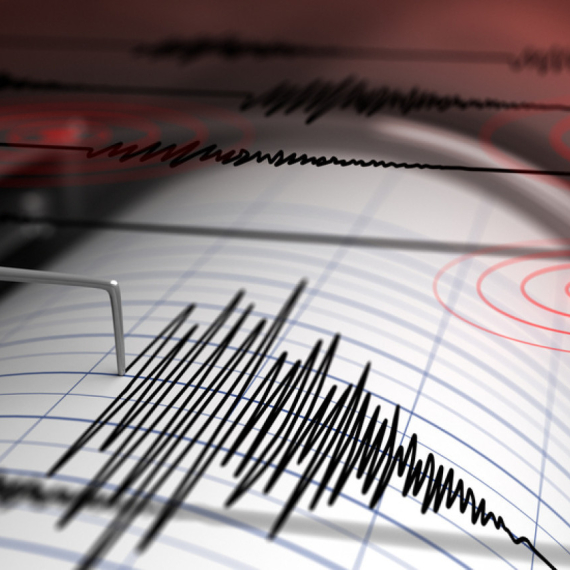





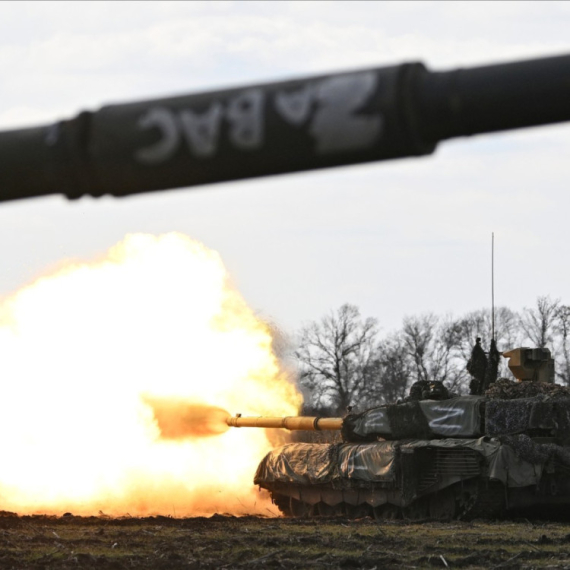
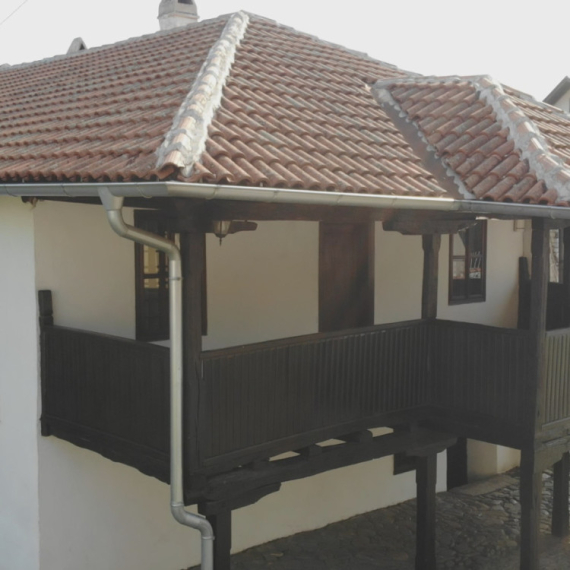
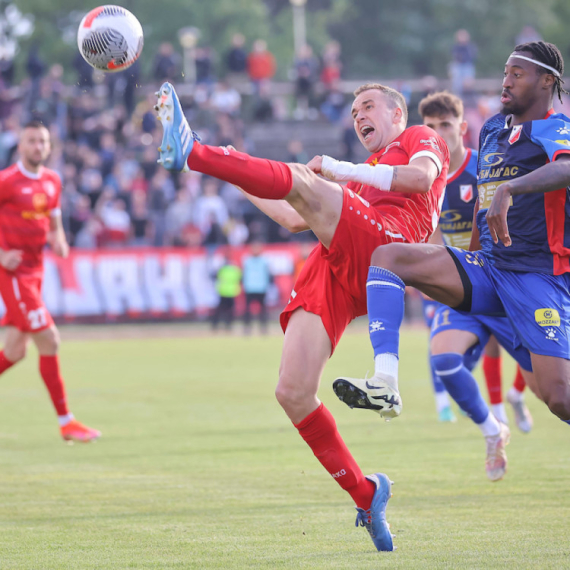


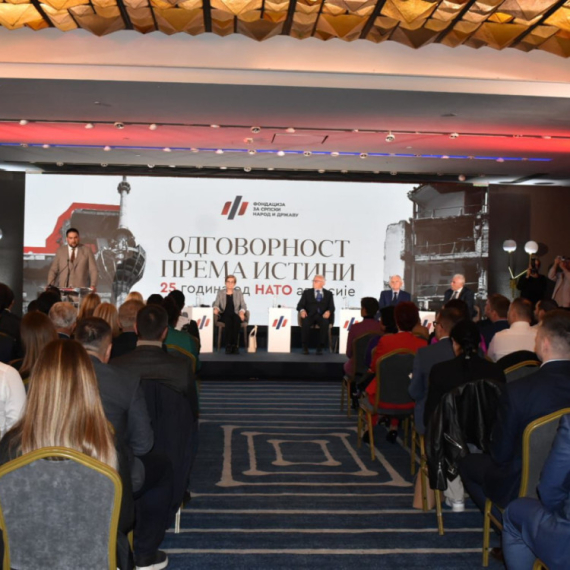

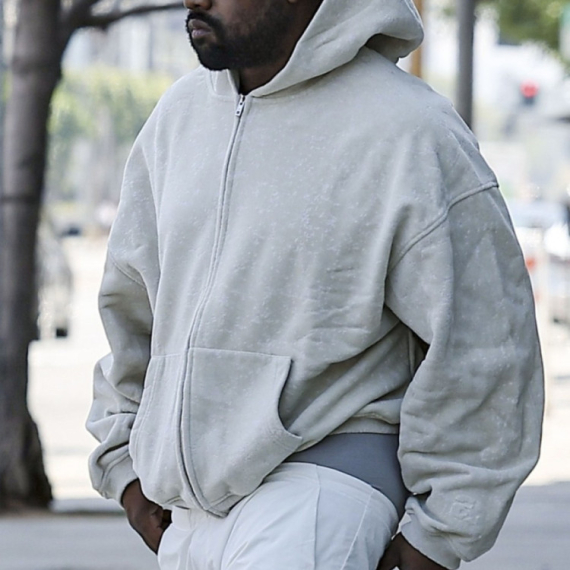
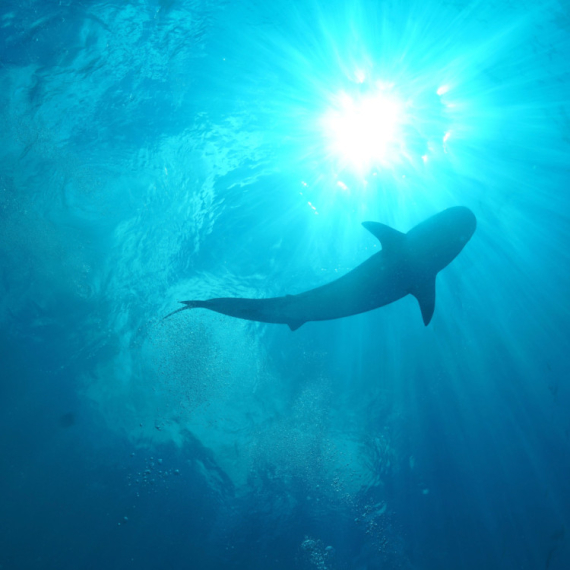

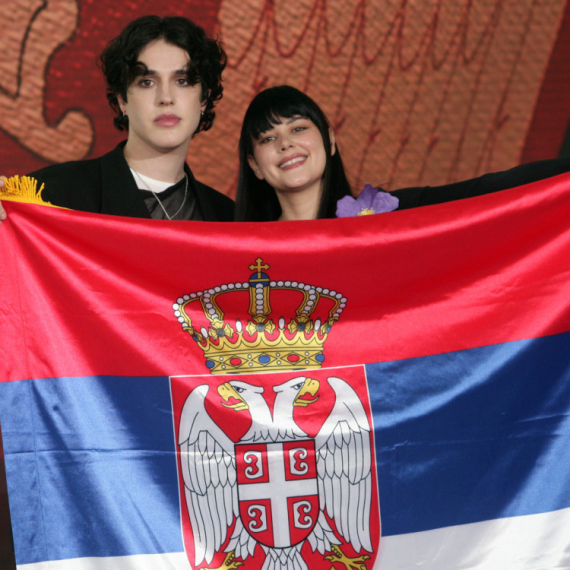






















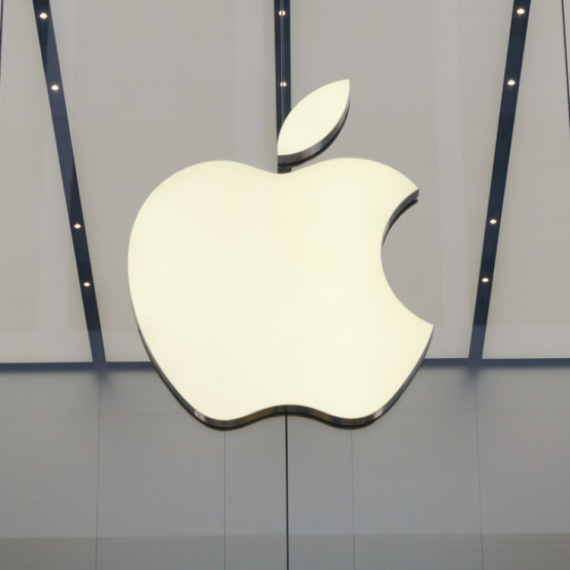




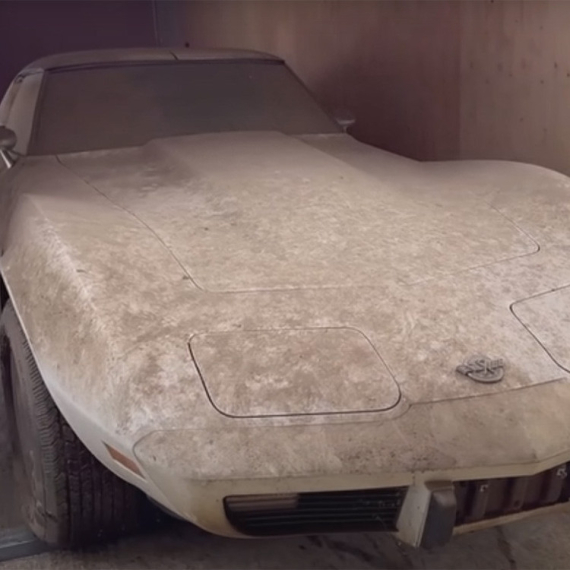
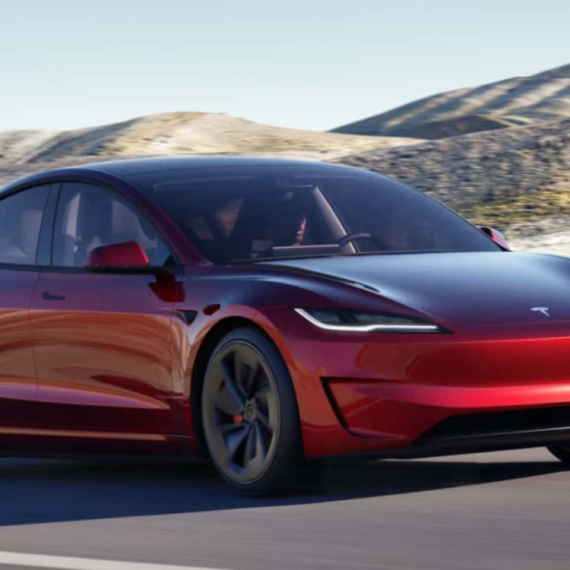


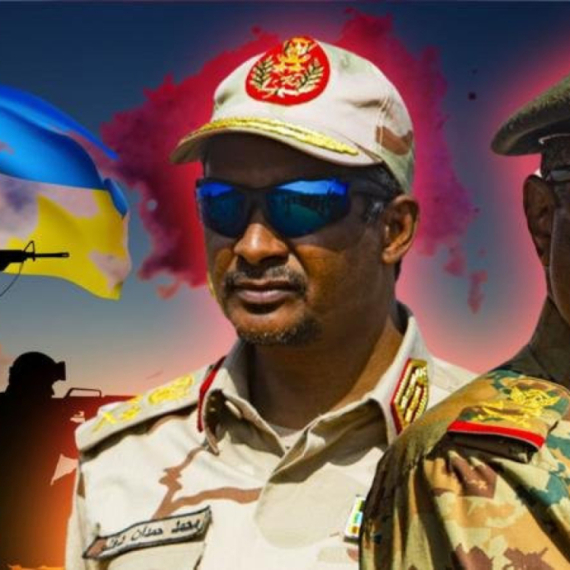
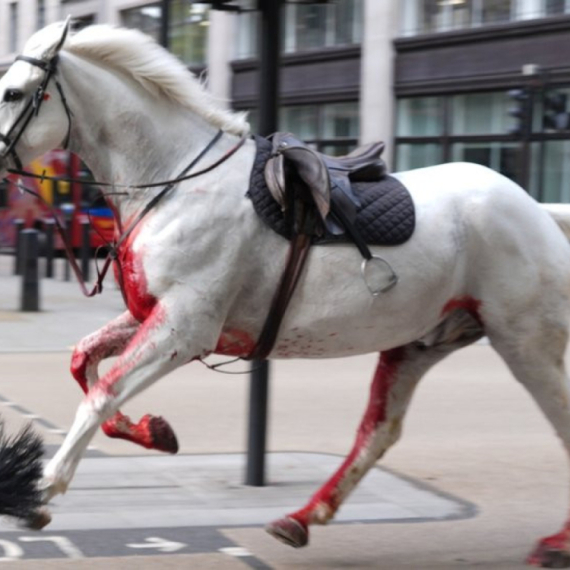
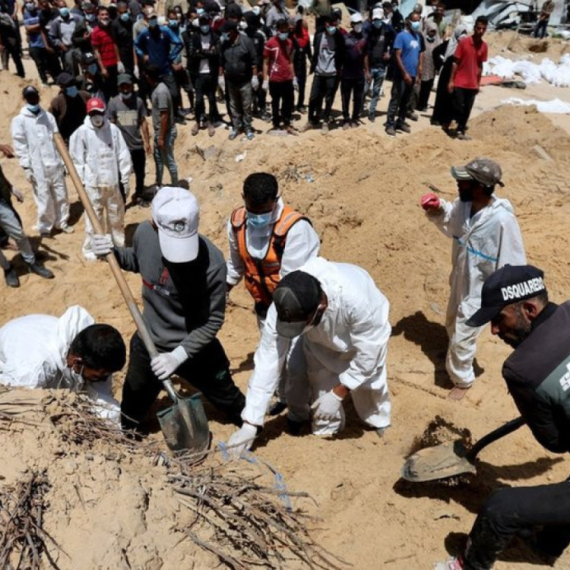

Komentari 1
Pogledaj komentare